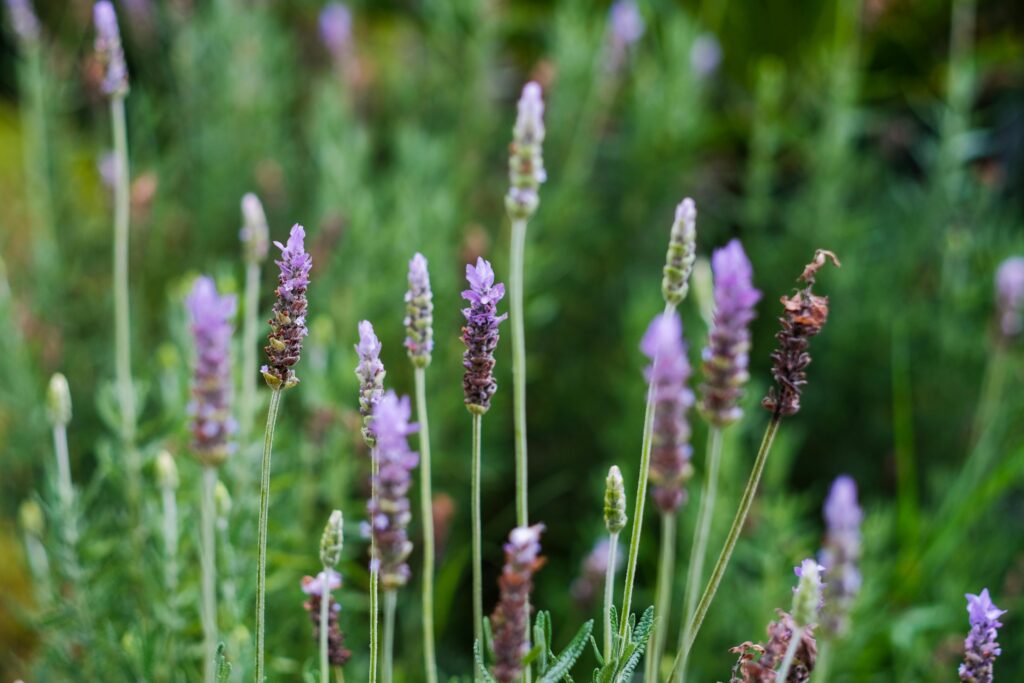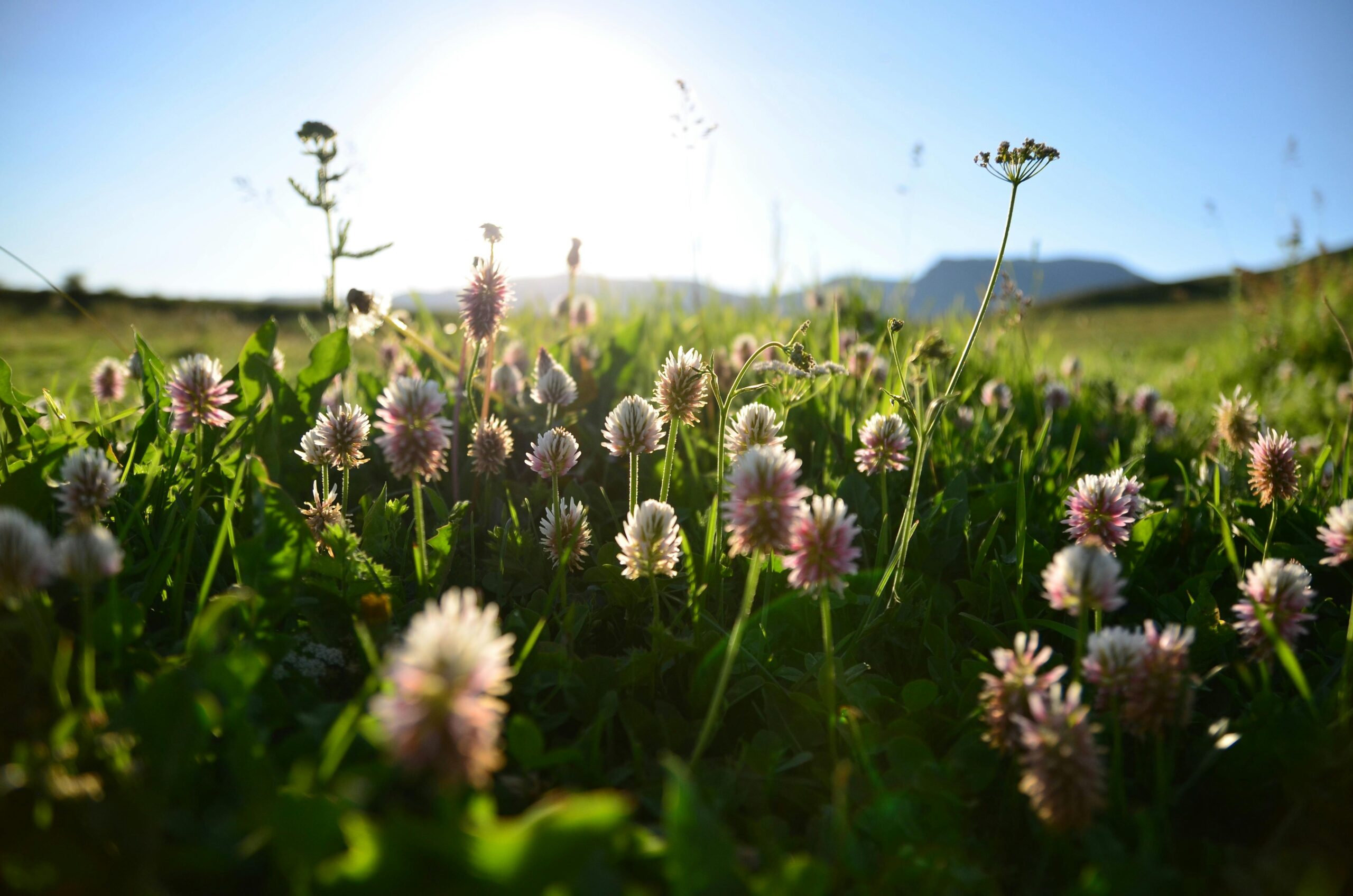In the realm of traditional herbalism and folk medicine, there is a profound belief that nature provides us with what we need precisely when we need it. This perspective holds that local herbs, which flourish more abundantly in a given area during a specific season, are nature’s way of signaling their importance and necessity for that time. Indeed, this ancient wisdom suggests a harmonious relationship between the environment and our health. When certain herbs grow abundantly, it indicates their increased relevance to the community’s well-being.

For instance, during seasons when respiratory ailments are prevalent, herbs known for their lung-soothing properties, such as mullein or elderberry, might appear more abundantly. Mullein helps soothe the lungs and relieve coughs, while elderberry, rich in antioxidants and vitamins, boosts the immune system. Similarly, in times when digestive issues are common, plants like dandelion or mint may proliferate. Dandelion supports liver health and aids detoxification, while mint soothes digestive upset and reduces bloating.
This synchronicity between the flourishing of specific herbs and the seasonal health challenges faced by the community embodies the idea that nature, in its wisdom, provides a timely and intuitive remedy for the ailments that are most likely to occur. This belief underscores a deep respect for the natural world and its rhythms, suggesting that by observing the plants that thrive around us, we can gain insights into the potential remedies available for our health needs. Consequently, it encourages a mindful and reciprocal relationship with the environment, where we acknowledge and utilize the gifts of nature while also recognizing our role in maintaining the balance and health of our ecosystem.
The Science Behind Consuming Local Herbs
Phytochemical Profiles
Native herbs have evolved over time to thrive in their specific environments. This evolution can lead to the development of unique phytochemicals that are particularly effective in addressing local health challenges. For example, plants growing in harsher climates may produce more potent antioxidants to protect themselves from environmental stress, which can translate into greater health benefits for humans consuming these plants. Rosemary, a Mediterranean herb, produces high levels of rosmarinic acid to protect it from intense sunlight, and this compound reduces oxidative stress in humans.
Phytochemicals are bioactive compounds in plants that have health benefits. Local herbs often have a complex mixture of these compounds, developed in response to their environment. As a result, they are effective in dealing with local health issues.
Gut Microbiota Interaction
Moreover, the human gut microbiota plays a crucial role in the digestion and absorption of dietary compounds, including those from herbs. The composition of gut microbiota can vary based on diet, environment, and genetic factors, which can influence how effectively the body metabolizes and utilizes herbal compounds. Evidence suggests that the gut microbiota of people living in a particular region may be better adapted to metabolize the compounds found in local plants. For example, traditional diets often include native herbs, and over time, the gut microbiota may evolve to efficiently process these plants, enhancing their bioavailability and therapeutic effects.
Native herbs might interact more effectively with the local population’s gut microbiota, leading to better absorption and utilization of their active compounds. This can result in more pronounced health benefits compared to non-native herbs, which the local microbiota may not process as efficiently. For example, individuals consuming turmeric for generations may be better at converting curcumin into its beneficial metabolites.
Seasonal Availability and Health Needs
In traditional herbalism, plants that grow abundantly in specific seasons are seen as most needed by our bodies during those times. This seasonal synchronicity suggests that nature provides remedies precisely when we need them the most.
Respiratory Health in Autumn
For example, during autumn, respiratory illnesses become more common. Herbs like mullein and elderberry often flourish during this time. Mullein helps soothe the lungs and relieve coughs, while elderberry boosts the immune system, helping to fend off colds and flu.
Digestive Health in Spring
Similarly, in spring, many people experience digestive issues and detoxification needs. During this season, herbs like dandelion and mint are abundant. Dandelion supports liver health and detoxification processes, while mint soothes digestive upset and reduces bloating. This synchronicity between the flourishing of specific herbs and the seasonal health challenges highlights nature’s wisdom in providing timely remedies.
The Role of Traditional Diets
Traditional diets often incorporate native herbs, and these practices have been passed down through generations. This dietary inclusion helps maintain the gut microbiota optimally adapted to metabolize local plants. Over time, regular consumption of these herbs finely tunes gut microbiota, enhancing the bioavailability and therapeutic effects of the herbs.
Cultural Wisdom and Herbal Knowledge
Many cultures around the world have developed extensive knowledge of herb use over centuries. This cultural wisdom guides the effective use of local herbs for health and wellness. For example, traditional Chinese medicine and Ayurveda include detailed information on seasonal and regional herb use, demonstrating a deep understanding of the relationship between plants and human health.
Modern Science Meets Traditional Wisdom
Modern scientific research continues to validate the use of traditional herbs. Studies on phytochemicals, gut microbiota interactions, and the health benefits of herbs support the practice of using local herbs. For instance, research on the Mediterranean diet highlights the health benefits of herbs like rosemary, oregano, and thyme, which have been traditionally used in the region.
Practical Tips for Using Local Herbs
Given the numerous benefits of consuming local herbs, incorporating them into your health regimen is both practical and beneficial.
Growing Your Own Herbs
Firstly, growing your own herbs ensures access to fresh, local plants. Many culinary and medicinal herbs are easy to grow at home, even in small spaces. Basil, rosemary, mint, and thyme are examples of herbs that are useful in the kitchen and have significant health benefits. Growing your own herbs also allows you to control their growing conditions, ensuring they are free from pesticides and other harmful chemicals.
Foraging for Wild Herbs
Additionally, foraging for wild herbs connects you with nature and provides access to local plants. However, proper plant identification is crucial to avoid harmful or toxic plants. Foraging guides and local experts can help you safely identify and collect wild herbs. Always forage in areas that are free from pollution and follow sustainable practices to ensure the health of the ecosystem.
Incorporating Herbs into Your Diet
Incorporating local herbs into your diet can be simple and delicious. You can add fresh herbs to salads, soups, and stews, or brew them into teas. Use dried herbs in cooking or make herbal infusions and tinctures to preserve their medicinal properties. For example, adding fresh basil to a salad not only enhances its flavor but also provides antioxidants that support overall health. Similarly, brewing a cup of mint tea can soothe digestive issues and promote relaxation.
Conclusion: Embracing the Wisdom of Local Herbs
In conclusion, incorporating local herbs into your health regimen offers a range of benefits, from enhanced bioavailability of beneficial compounds to support for gut microbiota. The wisdom of traditional herbalism, combined with modern scientific research, highlights the value of using native herbs for optimal health. Observing the plants that thrive around us can provide insights into potential remedies for seasonal health challenges, reinforcing the belief that nature provides what we need when we need it.
Embracing local herbs encourages a mindful and reciprocal relationship with the environment. By acknowledging and utilizing nature’s gifts, we contribute to maintaining the balance and health of our ecosystem. This approach supports not only individual health but also promotes the well-being of the entire community.
